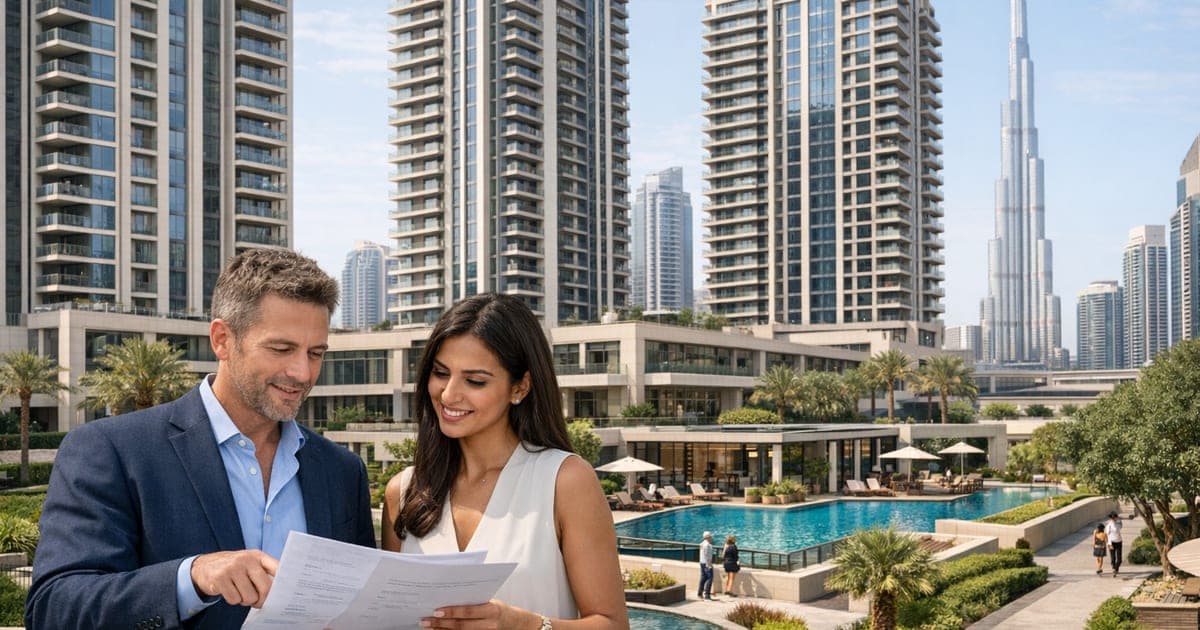Michael
•August 5, 2025
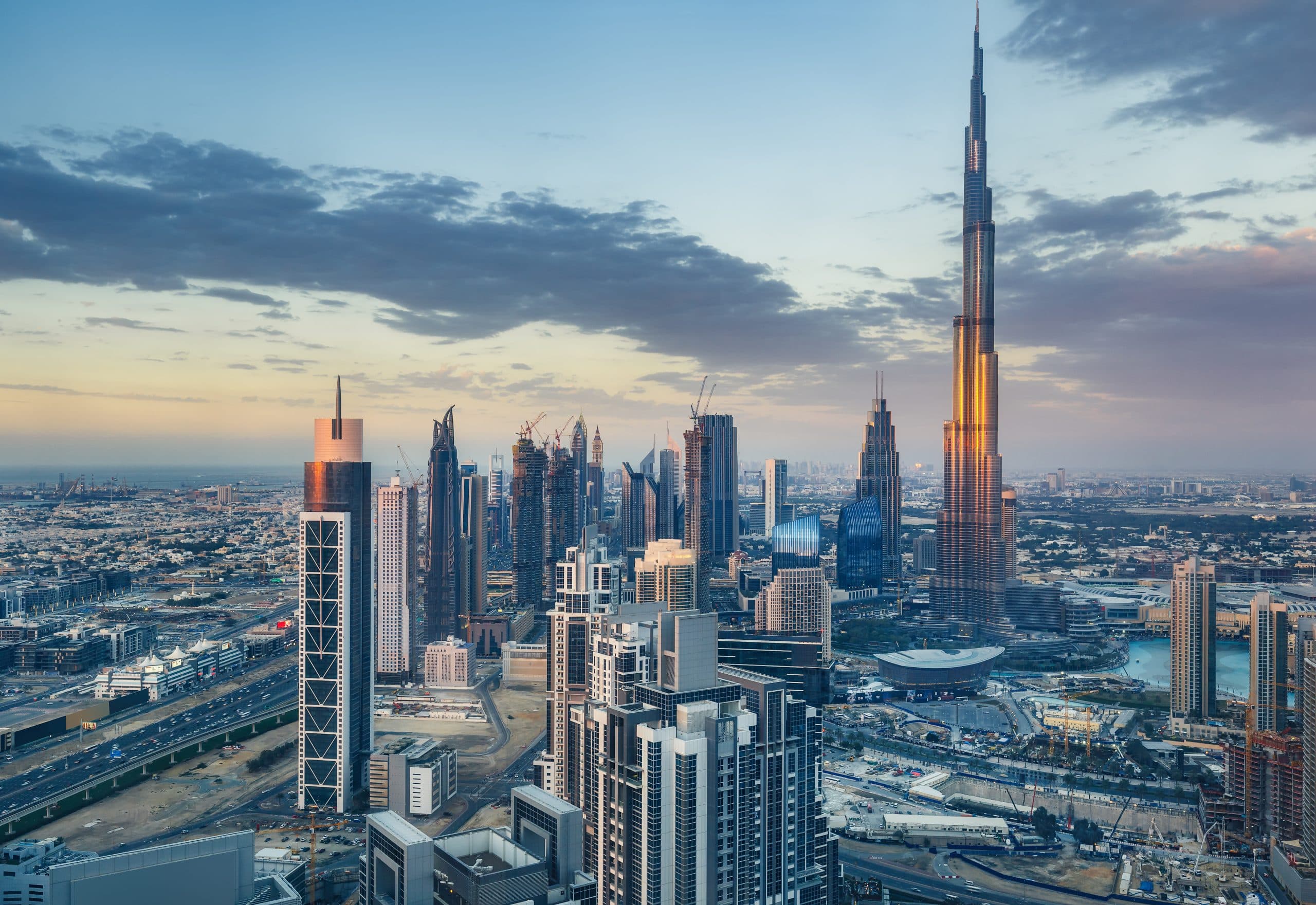
Dubai's real estate market continues to defy global economic uncertainties, delivering unprecedented performance that has captured the attention of investors worldwide. The emirate's property sector has not only maintained its momentum from previous years but has accelerated to new heights, establishing Dubai as one of the most dynamic and resilient real estate destinations globally.
The first half of 2025 has been nothing short of extraordinary for Dubai's property market, with record-breaking sales figures, robust price appreciation, and sustained international investor confidence. From luxury penthouses overlooking the iconic skyline to commercial properties experiencing explosive growth, every segment of the market tells a story of remarkable success and opportunity.
For property investors, developers, and end-users alike, understanding these market dynamics is crucial for making informed decisions in an environment where opportunities abound but require expert navigation. The complexity of Dubai's evolving real estate landscape demands professional guidance from experienced brokers who understand both the macro trends and micro-market nuances that drive successful investments.
The numbers speak volumes about Dubai's real estate market strength in 2025. According to the latest comprehensive market reports, total residential sales reached an astounding AED 151.8 billion in the first half of 2025, representing a remarkable 46% year-on-year increase in value [1]. This performance was accompanied by a 25% rise in transaction volumes, with 50,485 units sold during the six-month period.
The momentum has been particularly pronounced in recent months, with July 2025 setting new benchmarks across multiple metrics. The month recorded 20,304 property sales, marking an impressive 24.9% increase compared to July 2024 [2]. More significantly, the total value of transactions reached an extraordinary AED 65 billion, representing a surge of 29.5% from the previous year.
These figures represent more than statistical achievements; they reflect a fundamental shift in global investor confidence toward Dubai's real estate market. The sustained growth trajectory indicates that the market has moved beyond post-pandemic recovery into a new phase of expansion driven by structural advantages and strategic positioning.
Quarter-on-quarter analysis reveals the consistency of this growth pattern. Residential sales grew 33% in value and 19% in volume when comparing Q2 2025 to Q1 2025, demonstrating that the market's strength is not merely seasonal but represents a sustained upward trend [1]. This consistency provides investors with confidence that current market conditions reflect underlying fundamentals rather than speculative bubbles.
The average price per square foot has reached AED 1,582, representing a 6% increase from the second half of 2024 and an 18% year-on-year increase [1]. Perhaps most remarkably, current prices are now 90% above the pandemic-era low of AED 833 per square foot, illustrating the dramatic recovery and growth the market has experienced.
Among all property segments, the villa market has emerged as the undisputed champion of price appreciation and investor returns. The average villa price soared to AED 5.2 million in July 2025, representing a remarkable 32.2% increase from the previous year [2]. This performance significantly outpaced other property types and has established villas as the preferred choice for investors seeking substantial capital appreciation.
The villa market's exceptional performance can be attributed to several converging factors. International buyers, particularly from Europe and North America, have shown a strong preference for villa properties that offer privacy, space, and lifestyle amenities that align with post-pandemic living preferences. The demand for larger living spaces, private outdoor areas, and home office capabilities has fundamentally shifted buyer priorities toward villa communities.
Premium villa communities such as Emirates Hills, Palm Jumeirah, and newer developments in areas like Dubai Hills Estate and Sobha Hartland have experienced particularly strong demand. These communities offer not just luxury living but also investment security through established infrastructure, community amenities, and proven track records of capital appreciation.
The villa market's strength extends beyond luxury segments into more accessible price points. Communities like Arabian Ranches, The Springs, and newer developments in Dubai South have attracted both end-users and investors seeking entry points into the villa market. This broad-based demand across price segments indicates that the villa market's growth is supported by fundamental demand rather than speculative activity.
For investors considering villa properties, the current market presents both opportunities and considerations. While price appreciation has been substantial, the strong rental yields available in many villa communities continue to provide attractive returns for buy-to-let investors. The combination of capital appreciation and rental income has made villa investments particularly attractive for international investors seeking diversified real estate portfolios.
While residential properties have captured much of the market attention, the commercial real estate sector has quietly delivered the most spectacular returns of 2025. The volume of commercial property sales jumped by an incredible 57.8% compared to July 2024, but even more remarkably, the average price of commercial rentals skyrocketed by 200% year-on-year [2].
This explosive growth in commercial real estate reflects Dubai's continued evolution as a global business hub and the increasing demand for premium office, retail, and mixed-use spaces. The emirate's strategic positioning as a gateway between East and West, combined with business-friendly policies and world-class infrastructure, has attracted multinational corporations and regional headquarters to establish significant presences in Dubai.
The commercial sector's performance has been driven by several key factors. First, the return of international business travel and the resumption of in-person business activities has increased demand for premium office spaces. Second, Dubai's emergence as a technology and innovation hub has created demand for modern, flexible workspace solutions that command premium rents.
Areas such as Dubai International Financial Centre (DIFC), Business Bay, and Dubai Marina have experienced particularly strong commercial demand. These locations offer not just office space but integrated business ecosystems that include residential, retail, and hospitality components. The mixed-use nature of these developments has proven particularly attractive to businesses seeking to provide comprehensive lifestyle solutions for their employees.
For investors, the commercial real estate sector presents compelling opportunities that extend beyond traditional office investments. Retail spaces in high-traffic areas, warehouse and logistics facilities serving Dubai's growing e-commerce sector, and specialized spaces for technology companies all offer different risk-return profiles that can complement residential investment portfolios.
The 200% increase in commercial rental prices, while dramatic, reflects a market correction from previously depressed levels rather than unsustainable speculation. As Dubai continues to attract international businesses and expand its economic base, commercial real estate investments positioned in strategic locations with quality tenants offer the potential for sustained returns.
One of the most significant developments in Dubai's real estate market has been the dramatic shift in international buyer demographics. The United Kingdom overtook India to become the leading buyer nationality in Q2 2025, driven by a remarkable 56% quarterly surge in transactions [1]. This shift reflects broader global economic trends and Dubai's increasing appeal to European investors.
The rise of UK buyers can be attributed to several factors, including favorable exchange rates, Brexit-related uncertainties driving diversification strategies, and Dubai's established legal framework that provides security for international property investments. UK investors have shown particular interest in luxury residential properties and commercial real estate opportunities that offer both lifestyle benefits and investment returns.
India and Pakistan retained second and third positions respectively in the buyer nationality rankings, demonstrating the continued strength of traditional investor markets. However, the emergence of Poland as a new entrant in the top five buyer nationalities indicates Dubai's expanding appeal across diverse international markets [1].
Perhaps most notably, Russia dropped out of the top 10 buyer nationalities for the first time, while Ireland climbed to sixth position. These shifts reflect both geopolitical factors and changing investment patterns as global investors reassess their portfolio strategies in response to evolving international conditions.
The diversification of buyer nationalities provides stability to Dubai's real estate market by reducing dependence on any single source market. This geographic diversification of demand helps insulate the market from economic or political developments in specific countries and provides a broader base for sustained growth.
For real estate brokers and investors, understanding these demographic shifts is crucial for developing targeted marketing strategies and identifying emerging opportunities. Different nationality groups often have distinct preferences for property types, locations, and investment strategies, requiring specialized knowledge and cultural understanding to serve effectively.
Despite the strong demand driving price appreciation, Dubai's real estate market benefits from a well-managed supply pipeline that supports long-term growth without creating oversupply concerns. Over 20,000 new units were delivered in the first half of 2025, with Jumeirah Village Circle (JVC) leading completions at 20%, followed by Sobha Hartland at 11% and Mohammed Bin Rashid City at 8% [1].
The supply delivery has been strategically distributed across different price segments and property types, ensuring that market demand is met without flooding any particular segment. This balanced approach to supply management reflects the maturity of Dubai's development sector and the sophisticated planning processes that guide new project approvals.
Looking ahead, over 70,000 additional units are expected to be delivered by the end of 2025, with projections indicating more than 200,000 new units through 2027 [1]. This substantial pipeline reflects developer confidence in Dubai's long-term growth prospects and provides investors with a clear view of future supply dynamics.
The geographic distribution of new supply has been carefully planned to support Dubai's urban development strategy. New communities in areas such as Dubai South, Dubai Hills Estate, and Mohammed Bin Rashid City offer different lifestyle propositions and price points, ensuring that the market can accommodate diverse buyer preferences and budgets.
For investors, the supply pipeline provides both opportunities and considerations. New developments often offer attractive payment plans and pre-completion pricing that can provide significant returns for early investors. However, understanding the timing of supply delivery and its potential impact on specific micro-markets requires expert analysis and local market knowledge.
The quality of new supply has also improved significantly, with developers focusing on sustainable design, smart home technologies, and community amenities that enhance long-term value. These improvements in development standards support price appreciation and rental yields by ensuring that new properties meet evolving buyer expectations and lifestyle requirements.
The composition of market participants provides valuable insights into the underlying strength and sustainability of Dubai's real estate growth. Investor activity surged to 58% of all transactions in Q2 2025, up from 50% in Q1, while end-user activity correspondingly decreased to 42% [1]. This shift indicates that professional investors and institutions are increasingly recognizing the value proposition offered by Dubai's real estate market.
The dominance of cash buyers has become even more pronounced, representing 52% of transactions in Q2 2025, up from 42% in Q1. Meanwhile, mortgage-financed deals fell to 48% of transactions [1]. This trend toward cash purchases indicates an increasingly liquid buyer base driven by high-net-worth individuals and international investors seeking swift deal closures.
The prevalence of cash transactions provides several advantages for market stability. Cash buyers are typically less sensitive to interest rate fluctuations and mortgage availability, providing a more stable foundation for market activity. Additionally, cash transactions often close more quickly and with greater certainty, reducing market friction and supporting price stability.
The investor-dominated market structure also indicates that buyers are making calculated decisions based on return expectations rather than purely emotional or lifestyle considerations. This professional approach to property investment supports more rational pricing and reduces the likelihood of speculative bubbles that can destabilize markets.
For individual investors and end-users, the current market composition presents both challenges and opportunities. While increased competition from professional investors may drive prices higher, it also validates the investment thesis for Dubai real estate and provides confidence in long-term value appreciation.
The distribution of transaction activity across Dubai's various communities reveals important insights about buyer preferences and investment opportunities. Jumeirah Village Circle (JVC) led transaction volumes, followed by Business Bay, Wadi Al Safa 3, Dubai Investment Park Second, and Sobha Hartland 2 [2]. These areas represent a diverse mix of established and emerging communities that cater to different buyer segments and investment strategies.
JVC's position as the top performer by transaction volume reflects its appeal as an affordable entry point into Dubai's property market while still offering modern amenities and convenient location. The community's mix of apartments and townhouses provides options for both investors and end-users, while its established infrastructure and community facilities support strong rental demand.
Business Bay's strong performance demonstrates the continued appeal of centrally located, mixed-use developments that offer both residential and commercial opportunities. The area's proximity to Downtown Dubai and DIFC, combined with its waterfront location and modern infrastructure, makes it attractive to both local and international buyers.
The emergence of newer communities like Wadi Al Safa 3 and Sobha Hartland 2 in the top transaction volumes indicates that buyers are increasingly willing to consider emerging areas that offer value propositions and modern amenities. These communities often provide larger living spaces and more competitive pricing compared to established central areas.
Price segment analysis reveals that 62% of all transactions occurred in the under-AED 2 million range, with the AED 1-2 million segment being the most active [2]. This concentration of activity in the mid-market segment indicates healthy demand across a broad buyer base rather than concentration in luxury segments that might indicate speculative activity.
The strength of the mid-market segment provides important stability for the overall market and indicates that Dubai's real estate market remains accessible to a diverse range of buyers. This accessibility supports sustained demand and provides a foundation for continued growth across all market segments.
Dubai's luxury real estate segment has experienced remarkable growth, with prime residential transactions reaching 1,417 in Q2 2025, representing a 67% quarter-on-quarter increase and a 113% year-on-year surge [1]. This exceptional performance demonstrates that Dubai's appeal to ultra-high-net-worth individuals continues to strengthen.
The luxury market's strength is exemplified by record-breaking individual transactions. The most expensive apartment sale occurred in Aman Residences Dubai Tower 1, located in Jumeirah Second, fetching AED 174 million. Meanwhile, the highest-value villa transaction also took place in Jumeirah Second, with a sale price of AED 250 million [2].
These ultra-luxury transactions reflect Dubai's position as a global destination for the world's wealthiest individuals. The combination of luxury lifestyle amenities, favorable tax environment, political stability, and world-class infrastructure makes Dubai particularly attractive to international ultra-high-net-worth buyers seeking both lifestyle and investment benefits.
The luxury market's performance has important implications for the broader real estate sector. Luxury sales often serve as market indicators and confidence measures, with strong luxury performance typically preceding broader market strength. The record-breaking luxury activity in 2025 suggests continued confidence in Dubai's long-term prospects among the world's most sophisticated investors.
For brokers specializing in luxury properties, the current market presents exceptional opportunities to serve discerning clients seeking unique properties and investment opportunities. However, success in the luxury segment requires specialized knowledge, extensive networks, and the ability to provide comprehensive services that extend beyond traditional real estate transactions.
The Dubai real estate market's strength is evident across both off-plan and resale segments, each offering distinct advantages and opportunities for different types of investors. In the off-plan apartment segment, Binghatti Skyrise led the market with 485 transactions, followed by Sobha Solis with 268 sales [2]. For villas, The Wilds 3 was the most sought-after project with 316 transactions.
Off-plan properties continue to attract investors seeking maximum capital appreciation potential and flexible payment plans. The ability to purchase properties below market rates with extended payment schedules makes off-plan investments particularly attractive to investors with longer investment horizons and those seeking to maximize leverage.
The resale market has shown equally impressive strength, with DIFC Heights Tower leading apartment resales with 134 transactions, while Rukan 3 and Maha Townhouses each recorded 26 villa transactions [2]. The robust resale market indicates healthy liquidity and provides confidence to investors that properties can be readily monetized when desired.
The balance between off-plan and resale activity demonstrates market maturity and provides options for investors with different risk tolerances and investment strategies. Off-plan properties offer higher potential returns but require patience and market knowledge, while resale properties provide immediate ownership and rental income potential.
For investors working with experienced brokers, the choice between off-plan and resale properties should be based on individual investment objectives, risk tolerance, and market timing considerations. Professional guidance is essential for navigating the complexities of both segments and identifying opportunities that align with specific investment goals.
In a market characterized by rapid growth, diverse opportunities, and increasing complexity, the role of experienced real estate brokers has become more critical than ever. The data-driven insights and market trends discussed throughout this analysis require professional interpretation and application to individual investment strategies and goals.
Professional brokers bring essential value through their deep understanding of micro-market dynamics, regulatory requirements, and investment strategies that can maximize returns while minimizing risks. Their networks and relationships provide access to off-market opportunities and exclusive developments that may not be readily available to individual investors.
The current market environment, with its record-breaking performance and diverse opportunities, requires brokers who can provide comprehensive market analysis, strategic investment advice, and ongoing portfolio management services. The complexity of international buyer requirements, regulatory compliance, and market timing decisions demands professional expertise that extends far beyond basic transaction facilitation.
For investors seeking to capitalize on Dubai's exceptional real estate market performance, partnering with experienced, customer-focused brokers is not just advisable—it's essential for achieving optimal investment outcomes and navigating the opportunities that define Dubai's dynamic property landscape.
Ready to capitalize on Dubai's record-breaking real estate market? Connect with BrokeryHero's network of experienced, customer-obsessed brokers who specialize in Dubai's dynamic property market. Our curated professionals have the expertise and market knowledge to help you identify the best investment opportunities and navigate the complexities of Dubai's thriving real estate sector. Whether you're interested in high-performing villa investments, emerging commercial opportunities, or luxury properties, our trusted brokers are ready to guide your success.
Disclaimer: The content provided in this article is for informational purposes only and does not constitute legal, financial, or investment advice. The inclusion of any real estate agency, individual agent, or service is not an endorsement, recommendation, or guarantee of quality or performance. Readers are encouraged to conduct their own research, consult with licensed professionals, and verify credentials or certifications directly with the Dubai Land Department (DLD) or appropriate regulatory bodies before making any real estate decisions.
BrokeryHero and the authors of this article disclaim any liability for decisions made based on the content herein.
Get the latest articles delivered every week.
By subscribing, you agree to receive blog updates. Unsubscribe anytime.
Feb 19, 2026
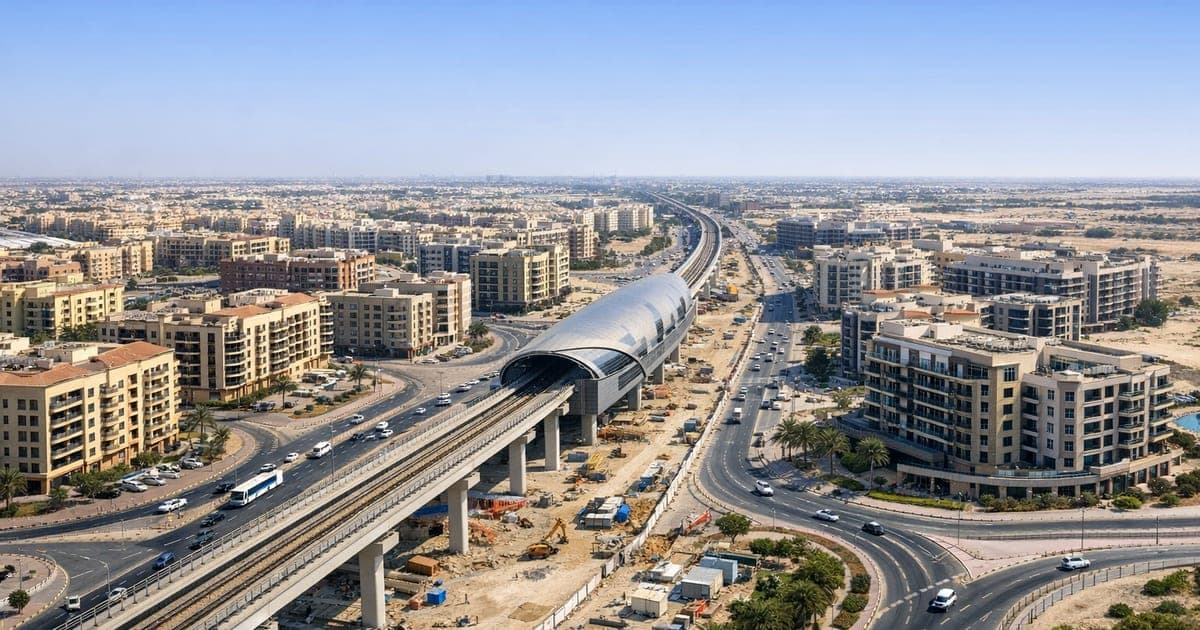
Feb 16, 2026
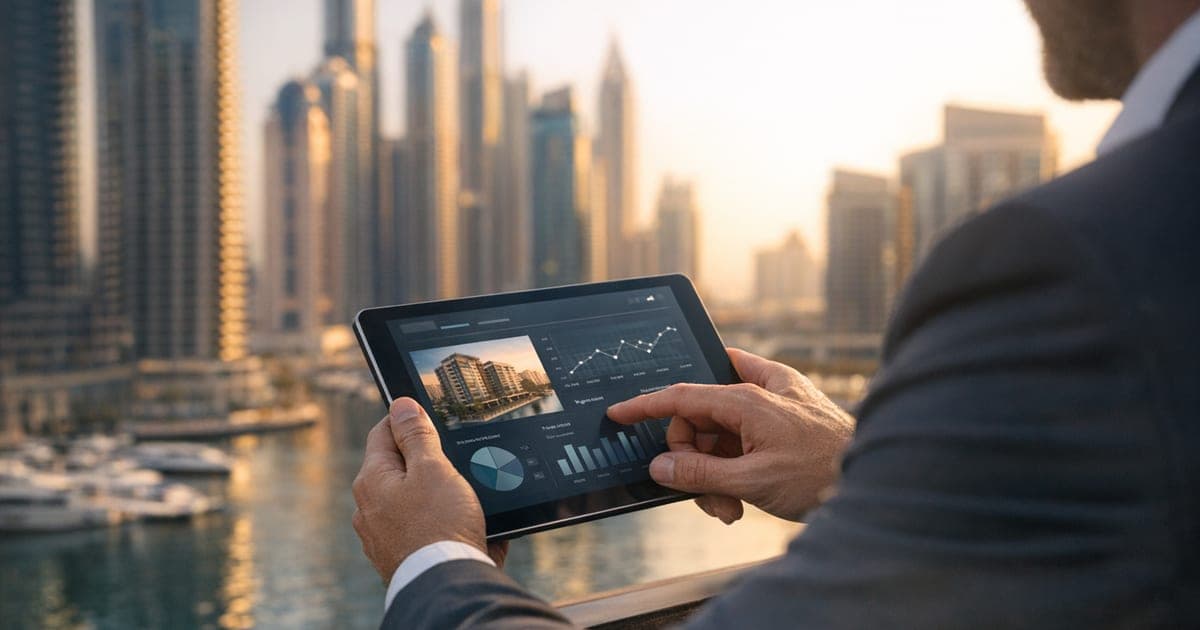
Feb 12, 2026

Feb 9, 2026
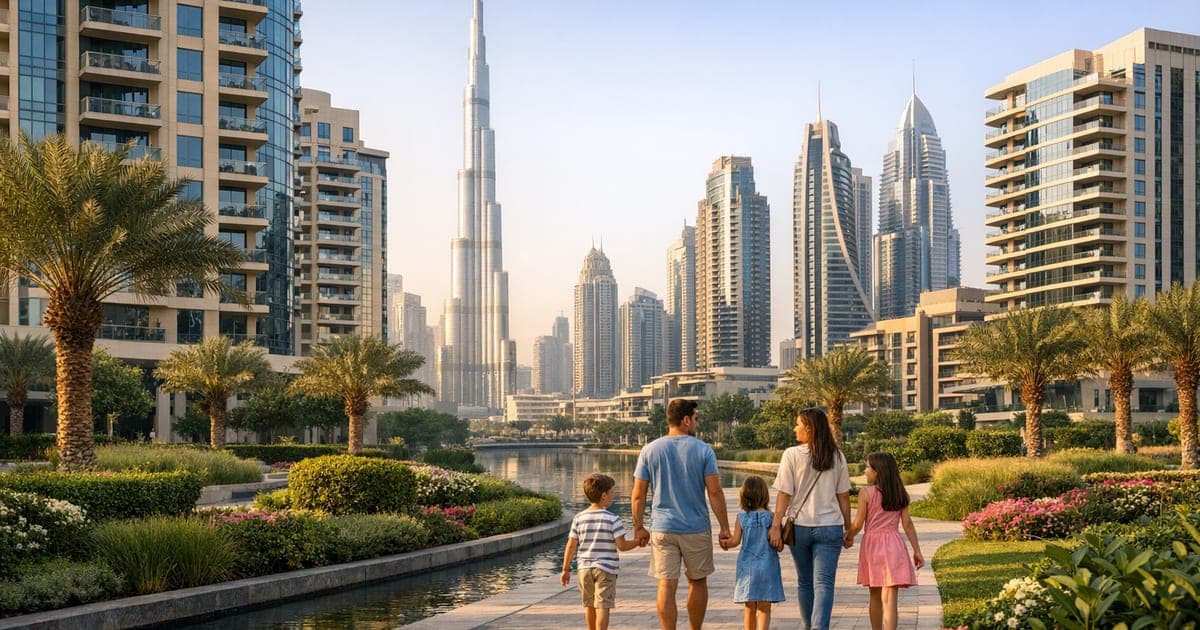
Feb 5, 2026
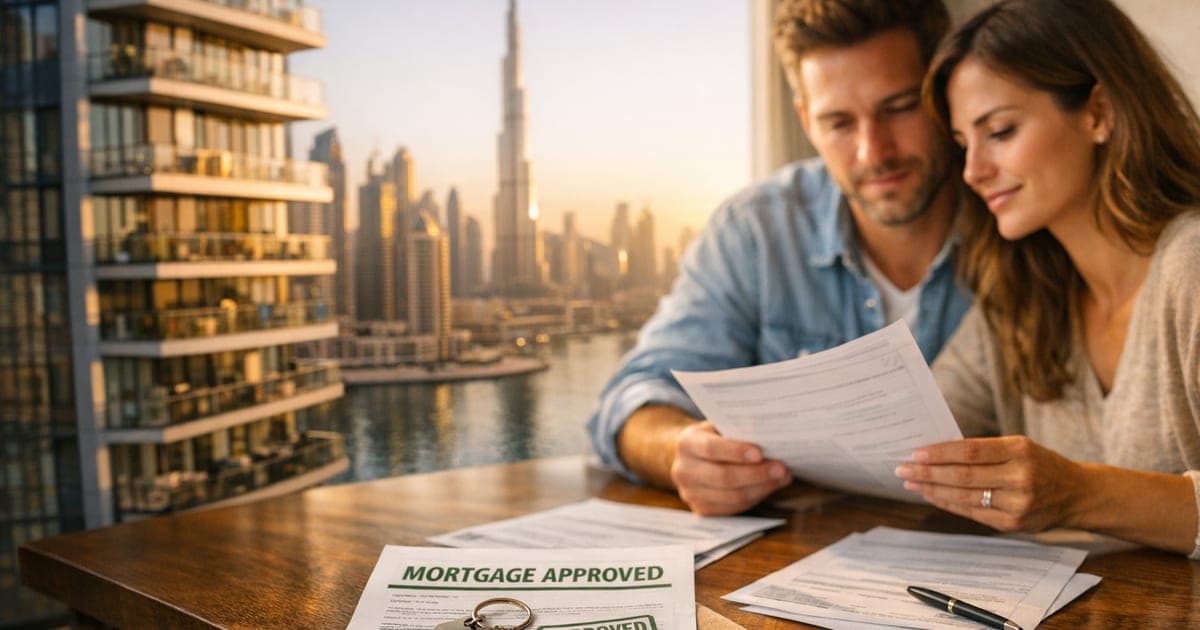
Feb 2, 2026
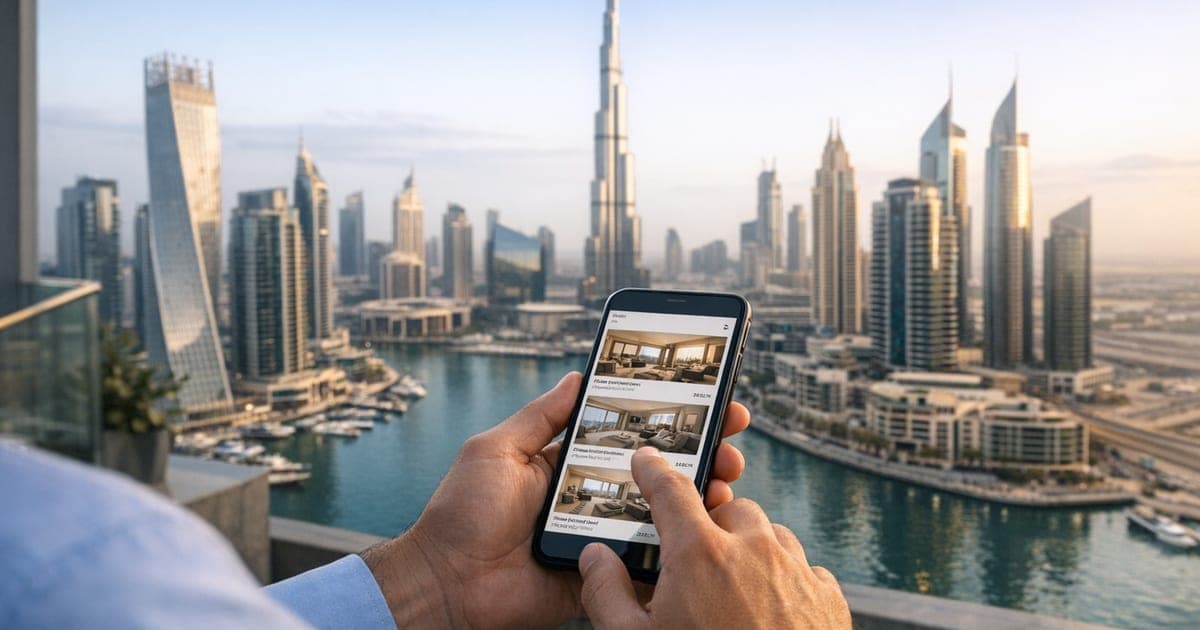
Feb 1, 2026
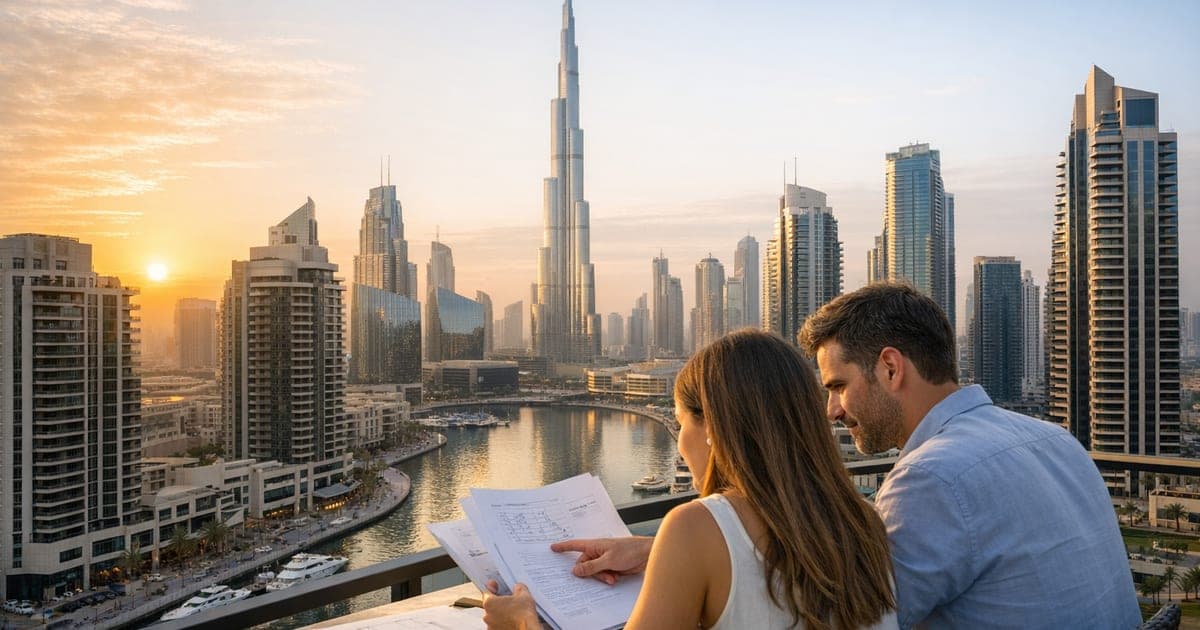
Jan 31, 2026
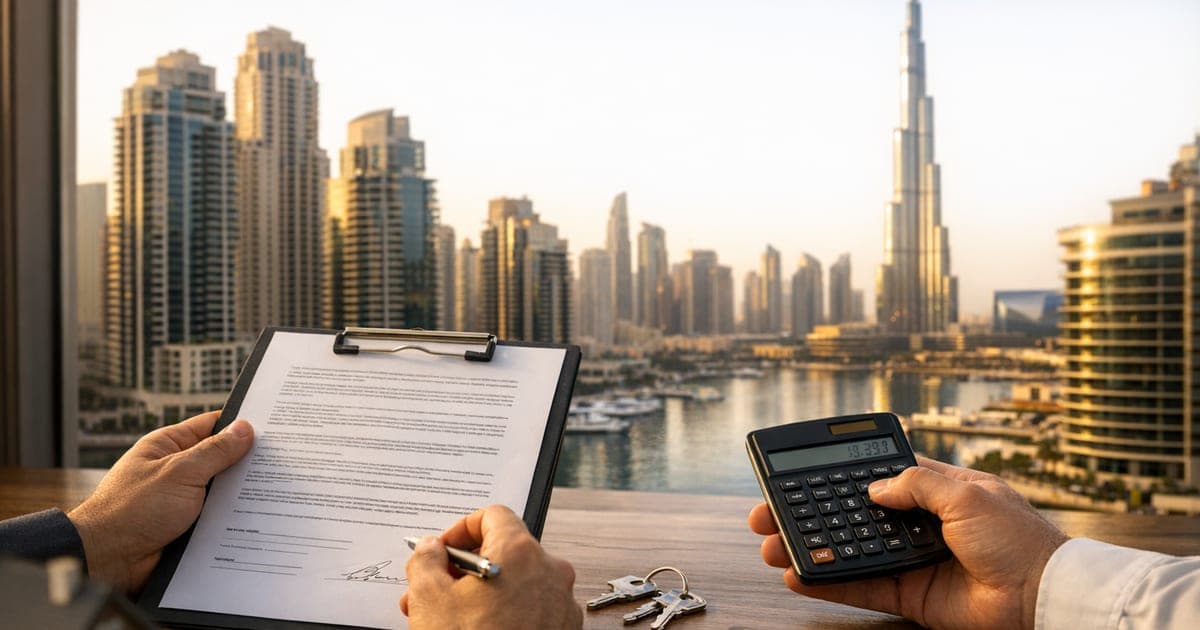
Jan 30, 2026
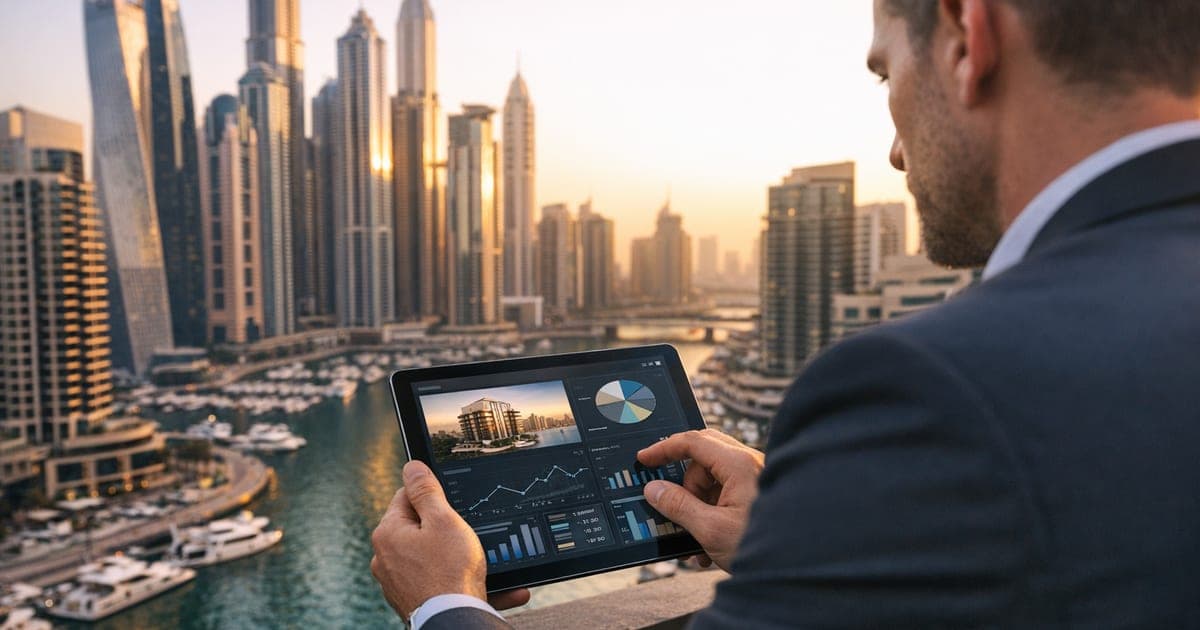
Jan 29, 2026
